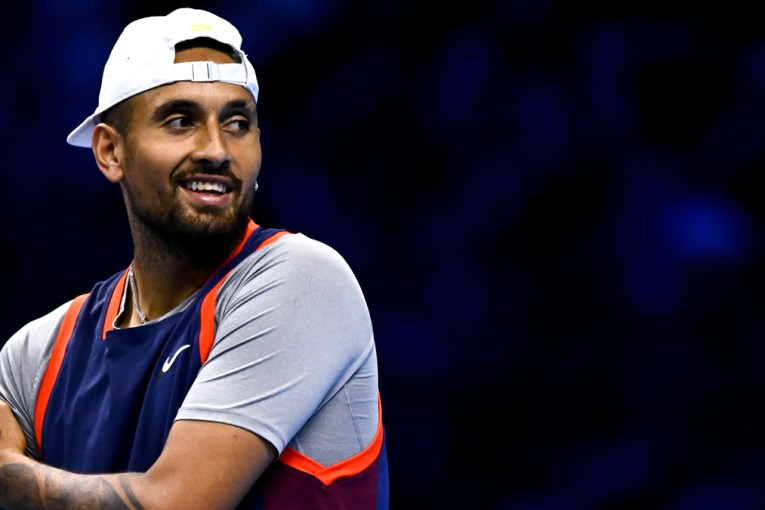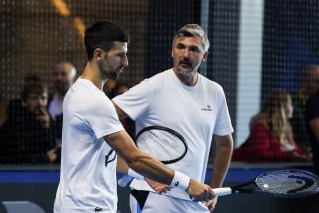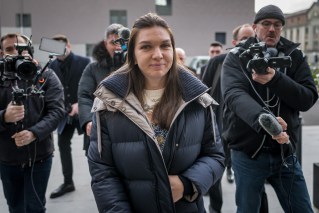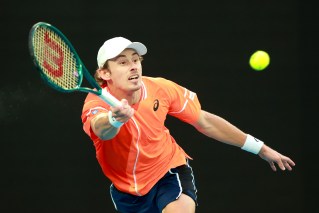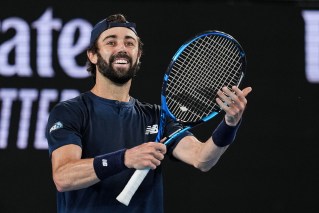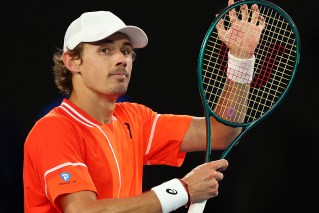Over 40 tennis matches flagged for match-fixing
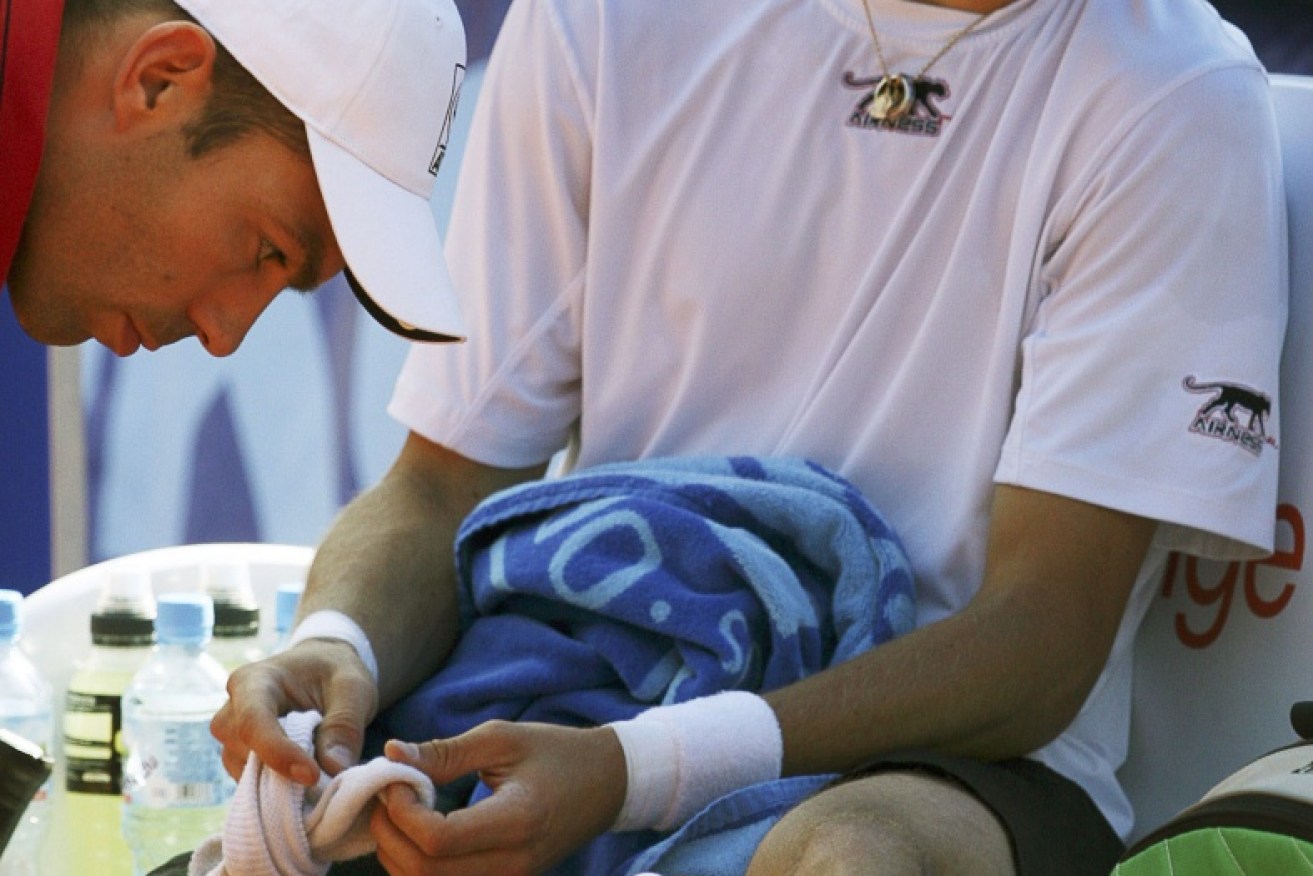
AP
More than 40 professional tennis matches were targeted for potential match-fixing by international bookmakers in just a three-month period last year – an average of more than three times a week.
The fixtures took place at tournaments in countries including Colombia, Morocco, Russia and Germany between September and November 2015, eight years after tennis first vowed to fight the scourge of corruption.
At least 20 of the players involved in those matches have been reported to world tennis authorities on previous occasions – a dozen of them were first flagged by integrity investigators as far back as 2008.
• Black market bookmaker linked to match-fixing
• Aussie pleads guilty to corrupt betting charge
• Lleyton Hewitt rubbishes claim he match fixed
Several of the players also appear on a separate blacklist obtained as part of an ABC Four Corners investigation into match-fixing and the underworld figures who control bookmaking across Asia.
The blacklist is maintained by a European bookmaker of tennis professionals not trusted to always play to win.
The list contains more than 350 names, including at least 10 who played at this year’s Australian Open.

Chris Kermode says tennis is a game of integrity and the ATP is not “sitting on evidence”. Photo: Getty
Two of the players on the list are low-ranked Australians, but the majority hail from developing economies in South America, Asia and Eastern Europe, where integrity measures in the sport are at their weakest. Four Corners has provided the list to tennis authorities.
The revelations come five days after the heads of each major tennis governing body – the Association of Tennis Professionals, the International Tennis Federation, the Grand Slam Board and the Women’s Tennis Association – announced a review of the sports integrity regime by a London barrister, Adam Lewis QC.
The investigation was prompted by news reports out of London that linked top-ranked players to corruption in the sport, prompting a global furore and overshadowing the first grand slam on the tennis calendar, the Australian Open.
The review will be the third for the sport in 11 years.
Four Corners has interviewed those who conducted the previous two reviews, all of whom say the sports’ governing bodies are facing a growing problem with matches fixed every single week somewhere across the world.
Tennis buried report warning of ‘deliberate underperformance’
The first major warning was given to tennis by the man who would go on to become Australia’s anti-doping chief, Richard Ings.
As an ATP executive, he produced a scathing report in November 2005 that was meant to have been made public.

Nikolay Davydenko retired hurt from his second-round match with Martin Vassallo Arguello in Poland in 2007, a match in which officials investigated suspicious betting patterns. Photo: AP
The Ings report warned tennis it was “an alarming wake-up call for the sport of men’s professional tennis and its governing bodies”.
“Deliberate underperformance by players and ensuing gambling and alleged corruption that results from such deliberate underperformance, appear to pervade all levels of the men’s professional game today,” the report stated.
Mr Ings recommended the establishment of a uniform anti-corruption code and an integrity unit to more fully investigate 37 matches that were highly suspicious.
But tennis buried the Ings report and did not act on either recommendation until a major scandal years two later.
The controversy centred on a match in Poland in 2007 involving then world’s fourth-best player, Nikolay Davydenko, after Britain’s betting exchange, Betfair, voided all bets on the match.
Although there was ultimately insufficient evidence to make a finding against the Russian, the team investigating that match also discovered damaging evidence about a far wider corruption problem.
This time the investigators identified another 44 matches that required urgent investigation and potential sanction against several key players.
Instead, tennis authorities set up a minimal integrity regime and decided not to go after the players involved, citing a new player code that would not be applied retrospectively.
‘There is still a huge question mark over integrity’
Mark Phillips, a betting analyst from Global Sports Integrity, was one of the investigators involved in the 2007/8 probe.

David Marrero has appeared on a secret blacklist of professional tennis players who have played in matches bookmakers deemed to be suspicious. Photo: Getty
He told Four Corners he believed that had tennis followed up with their investigation it would have been able to root out the core people corrupting other players.
“We actually did a presentation, showed various parts of the investigation that we had done and then physically handed over data files and actual ring binders of evidence that we had collected,” he said.
“We were pretty experienced at investigating these types of matters and we believed the evidence to be very strong.”
One of the heads of the review, Ben Gunn, said tennis at the time was at a “cross roads”.
“I think it’s disappointing eight years later, having had two reviews eight years later, that it appears there is still a huge question mark over the integrity of some tennis games,” he said.
-with Joel Tozer, ABC
